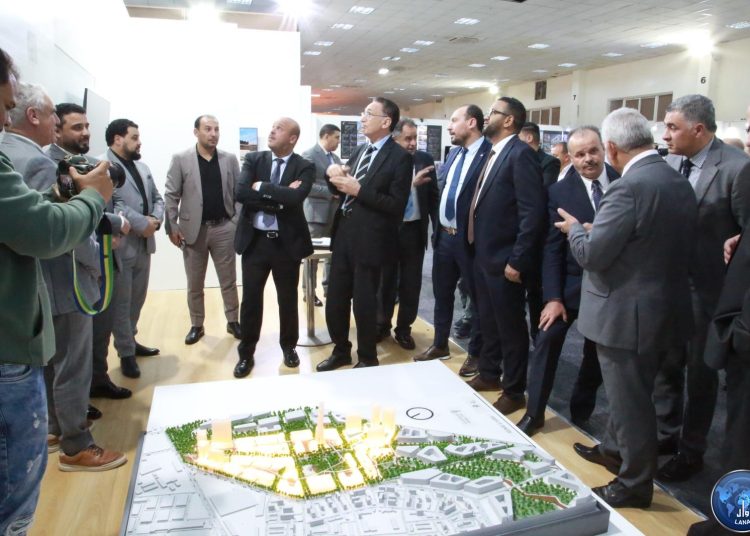The Al-Bunya Investments and Services Company, a subsidiary of the state LPTIC Holding Company held an exhibition last Wednesday at Tripoli Fairgrounds to present the initial architectural designs for the Smart City project for communications and information.
Smart cities in Tripoli and Benghazi
The exhibition, the state news agency LANA reported, included a presentation of proposed models for preliminary designs submitted by several companies participating in a bid, the submissions will be presented to a selection committee to choose the best proposal for the projects for Tripoli and Benghazi. The winning proposals will then go on to enter the implementation phase.
Nine companies were selected from among 26 local and foreign companies that applied to participate in the competition.
Within framework of digital transformation
This exhibition comes within the framework of the government’s vision for the digital transformation of the country and keeping pace with the world’s achievements in the field of communication and information technology to provide the best services to citizens.
The exhibition activities were attended by the Minister of Economy and Trade, Mohamed Hwej, the head of the General Union of Libyan Chambers of Commerce and Industry, Mohamed Al-Raied, the Chairman of the Libyan Telecommunications Holding Company (LPTIC), Mohamed Bin Ayad and several interested parties.
Knowledge economy
In his speech, the Minister of Economy and Trade, Mohamed Hwej said that such projects give a positive reflection on keeping pace with the modern economy. That is, the economy of knowledge and social intelligence, to bring about a qualitative shift in the economy so that it depends on thought and development, keeping pace with the modern global system and bringing about economic diversification in the country’s income.
Projects attract investment
The head of the General Union of Chambers, Mohamed Raied, meanwhile, affirmed his and his Union’s support for such competitions and stressed their importance in attracting investors, encouraging the movement of industry and trade.
Good for technology and youth
They are also important, he added, in motivating young people to participate in advancing the national economy by participating in the areas of sustainable development and projects with a technical dimension that help the Libyan economy to recover and trace successful experiences.
Localize the principle of artificial intelligence
For his part, Chairman of the LPTIC, Mohamed Bin Ayad, affirmed that the goal of the smart city is to localize the principle of artificial intelligence, raise the capabilities, technologies, and economic capabilities of the state, and achieve the principle of economic diversification.
Speaking exclusively to Libya Herald, Bin Ayad, said this celebration is a result of the primary stage, and the protocol for announcing it was approved by the Prime Minister of the Government of National Unity, Abd Alhamid Aldabaiba, on 14 November, 2022, in order to develop the telecommunications sector in Libya.
Bin Ayad added that the concept of the Smart City that is being pursued represents a virtual simulation of the city. This is as it includes a wide range of digital technologies on which development depends on communication and information technology, given that it is a smart society. It is the society that makes a great effort to use information technologies to change the way of working life in Libya to make life easier for people at all levels and shortens time and effort and reduces costs.
The LPTIC head indicated that the smart city provides broadband communication services, focuses on effective education and training, and leads to achieving balance in the distribution of digital services. This is so as to ensure that all individuals benefit from technologies, enhance performance in the public and private sectors, and establish economic groups to finance development and achieve economic development that works to attract a skilled workforce.
Bin Ayad said the smart city is three cities in one, which is the informational virtual city, the knowledge city, and the environmental city, which is the place where the virtual and real worlds meet.
He added that LPTIC, which owns the telecommunications sector companies in Libya, will work to highlight the role of the smart city in sustainable and comprehensive development, noting the importance of the role of the private sector in participating in building this virtual city so that everyone has a role in establishing it and contributing to all its details.











